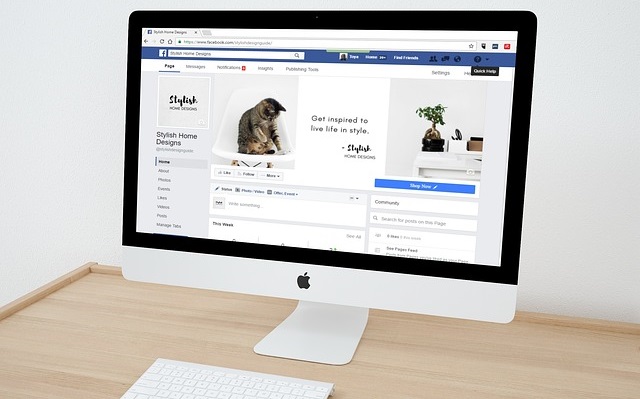
So, you’ve decided to start an online store in 2026—congratulations! 🎉 But here’s the big question:
Which ecommerce platform should you choose?
Picking the wrong platform can waste time, money, and opportunities. The right one, however, makes launching your business smooth and scalable.
The good news: In 2026, e-commerce platforms have become more beginner-friendly than ever. Whether you want to launch a dropshipping store, sell digital products, or build a brand, there’s a platform tailored to your needs.
This guide will compare the best e-commerce platforms for beginners in 2026, covering their features, pricing, pros, cons, and best use cases.
What to Look for in a Beginner-Friendly E-Commerce Platform
Before we jump into comparisons, let’s identify what matters most for beginners:
- Ease of use – Simple setup, drag-and-drop options, no coding required.
- Affordability – Low monthly fees with reasonable add-ons.
- Customization – Ability to brand your store.
- Integrations – Apps and plugins for payments, shipping, and marketing.
- Scalability – Can grow as your business grows.
- Support – Tutorials, live chat, and community support.
1. Shopify – Best All-in-One Solution
Overview:
Shopify remains the most popular e-commerce platform in 2026. It’s designed for beginners who want a done-for-you system without worrying about technical details.
Features:
- Easy drag-and-drop store builder.
- 100+ customizable templates.
- Integrated payment gateways (Shopify Payments, PayPal, Stripe).
- Huge app store for marketing, shipping, and inventory.
- AI-powered product recommendations & analytics (new in 2026).
Pricing (2026):
- Basic: $29/month
- Standard: $79/month
- Advanced: $299/month
Pros:
- Super easy for beginners.
- Scalable for large stores.
- Excellent support.
- Works great for dropshipping and POD.
Cons:
- Monthly fees add up.
- Limited customization without apps.
- Transaction fees if not using Shopify Payments.
Best for: Beginners who want a quick, reliable, and professional store without coding.
2. WooCommerce (WordPress) – Best for Customization
Overview:
WooCommerce is a free WordPress plugin that turns your site into a store. It’s ideal if you want complete control and flexibility.
Features:
- Open-source, highly customizable.
- Thousands of themes and plugins.
- SEO-friendly.
- Supports physical, digital, and subscription products.
- Works with any hosting provider.
Pricing (2026):
- Plugin: Free
- Hosting: $10–$25/month
- Themes & plugins: $50–$200 (optional)
Pros:
- Full customization.
- Cheaper than Shopify if self-managed.
- Strong SEO performance.
- Large developer community.
Cons:
- Steeper learning curve.
- Requires hosting & maintenance.
- Plugins can slow down your site.
Best for: Beginners who want full control, enjoy WordPress, or plan to blog alongside their store.
3. Wix – Best for Drag-and-Drop Simplicity
Overview:
Wix is known for its easy drag-and-drop website builder. In 2026, its e-commerce features are stronger than ever.
Features:
- Intuitive drag-and-drop builder.
- 500+ customizable templates.
- Built-in SEO, marketing, and email tools.
- App marketplace for extra functions.
- Accepts payments globally.
Pricing (2026):
- Basic E-commerce: $23/month
- Business Unlimited: $39/month
- Business VIP: $69/month
Pros:
- Very easy for beginners.
- Affordable.
- All-in-one platform (hosting, design, store).
Cons:
- Limited scalability.
- Less flexible than Shopify/WooCommerce.
- Not ideal for large catalogs.
Best for: Beginners who want a simple, low-cost store with minimal setup.
4. Squarespace – Best for Design-Focused Stores
Overview:
Squarespace is famous for its beautiful templates and ease of use. If your brand relies on aesthetics, it’s a great choice.
Features:
- Award-winning templates.
- Built-in marketing & SEO tools.
- Digital and physical product support.
- Blogging functionality.
- Subscription and membership options.
Pricing (2026):
- Business: $25/month
- Commerce Basic: $40/month
- Commerce Advanced: $72/month
Pros:
- Stunning, professional designs.
- Easy to use.
- Good for portfolio-style stores.
Cons:
- Limited integrations compared to Shopify.
- Not great for advanced e-commerce needs.
- Transaction fees on lower plans.
Best for: Creative entrepreneurs, artists, photographers, and brands focused on visuals.
5. BigCommerce – Best for Growing Businesses
Overview:
BigCommerce is a robust platform designed for scaling businesses. It offers advanced features out-of-the-box.
Features:
- Multi-channel selling (Amazon, eBay, Instagram).
- Advanced inventory management.
- SEO-friendly structure.
- No transaction fees.
- Supports large catalogs.
Pricing (2026):
- Standard: $39/month
- Plus: $105/month
- Pro: $399/month
Pros:
- Scalable for big businesses.
- Multi-channel integrations.
- Advanced features without apps.
Cons:
- Overwhelming for beginners.
- Higher pricing tiers.
Best for: Beginners planning to scale into a large store quickly.
6. Etsy – Best for Handmade & Creative Products
Overview:
Etsy is a marketplace rather than a standalone store builder. It’s great for beginners selling handmade, vintage, or unique items.
Features:
- Access to Etsy’s existing customer base.
- Easy product listings.
- Built-in SEO within Etsy’s search engine.
- No need for hosting or design.
Pricing (2026):
- Free to sign up
- $0.20 per listing + 6.5% transaction fee
Pros:
- Instant access to millions of buyers.
- No website setup needed.
- Perfect for hobbyists and artists.
Cons:
- High competition.
- Fees can eat into profit.
- Limited control over branding.
Best for: Beginners selling handmade crafts, art, jewelry, and custom items.
Comparison Table – Best ECommerce Platforms in 2026
| Platform | Ease of Use | Pricing | Best For | Scalability |
| Shopify | ⭐⭐⭐⭐⭐ | $29–$299/mo | All-in-one beginners | High |
| WooCommerce | ⭐⭐⭐ | Free + hosting | Customization lovers | High |
| Wix | ⭐⭐⭐⭐ | $23–$69/mo | Simplicity seekers | Medium |
| Squarespace | ⭐⭐⭐⭐ | $25–$72/mo | Design-focused brands | Medium |
| BigCommerce | ⭐⭐⭐⭐ | $39–$399/mo | Fast-growing stores | High |
| Etsy | ⭐⭐⭐⭐⭐ | Free + fees | Handmade sellers | Low |
How to Choose the Right Platform
Ask yourself:
- Do I want ease of use or full customization?
- What’s my budget?
- Am I selling physical products, digital goods, or services?
- Do I want to scale big or keep it small?
👉 Recommendation for Beginners:
- Choose Shopify if you want simplicity + scalability.
- Choose WooCommerce if you want full control and blogging.
- Choose Wix/Squarespace if you value design and ease.
- Choose Etsy if you sell handmade or vintage items.
My Conclusion
In 2026, e-commerce is bigger than ever—and starting with the right platform can make or break your store.
- Shopify is the best all-rounder.
- WooCommerce gives you control.
- Wix/Squarespace are great for creatives.
- BigCommerce is for scaling.
- Etsy is for handmade sellers.
Pick the one that matches your goals, and you’ll be ready to launch a profitable online store from scratch.










